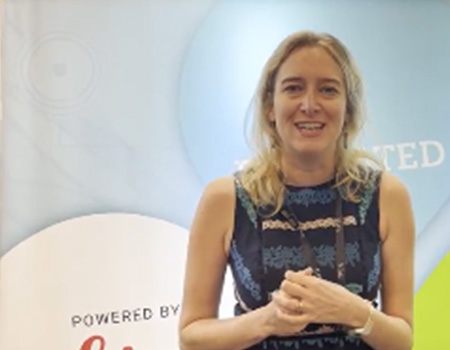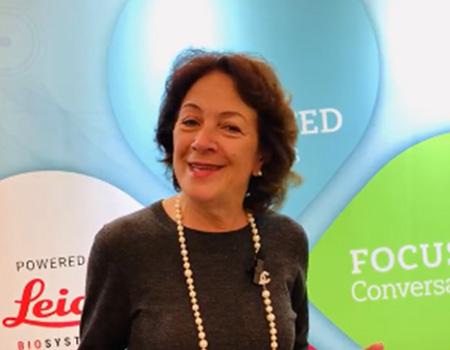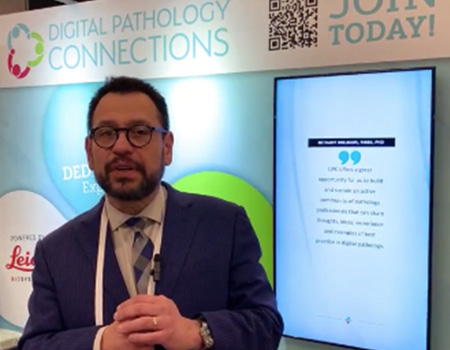Digital Pathology Connections Attracts Participants from More Than 23 Countries in First Week
VISTA, Calif. (18, 2022) – Pathologists from more than 23 countries are engaged on more than 35 discussion threads on Digital Pathology Connections (DPC), a global community for professionals interested in the digital future of the anatomic pathology laboratory. Pathology professionals everywhere can join DPC online.
The new forum opened to all pathologists worldwide after a successful beta launch attracted pathologists in Europe, Japan and the United States. In its first week, the size of the community grew 400% as pathologists signed on to the virtual community for educational content and robust discussions on trending topics in pathology, curated by pathologists at the forefront of digital transformation.

“We've just started to grow this LinkedIn community of people that want to have conversations about some of the challenges and opportunities of deploying digital in their institutions. It's exciting to hear about everybody's plans and all the different stages of the journey that they're on,” commented Bethany Williams, MBBS, PhD and a charter member of DPC from the UK.
The DPC debut was featured at Path Visions 2022, a leading digital pathology conference. At the conference, Dr. Williams and other pathologists hosted discussions on topics ranging from the evolving role of the pathologist to AI-driven computational pathology.

“There were so many people who attended the conference this year and so much excitement regarding digital pathology, which proves to me that digital pathology finally is real,” observed Sylvia Asa, MD, PhD, a DPC charter member from Canada working in the United States who hosted the forum about the evolving role of the pathologist. ”Digital pathology changes what we do as pathologists. We now can move from behind the microscope and start to use our screens to see the things that we need to see to make a diagnosis. Digital pathology also gives us a platform for a new way of doing things, like pattern recognition and quantification, because we can use AI tools on those digitized images.”

DPC charter member Giovanni Lujan, MD, PhD concurred on the potential of computational pathology to enhance patient care. “Computers can do a very good job at a specific task, and the human brain is an expert of putting that specific information in context with clinical history and other data points that are always present in clinical phases,” Lujan remarked. “Pathologists, specifically, have an important role based on our knowledge and experience. For example, we can evaluate what the AI is telling us and how much of what it is telling us is relevant to our partner case.”
In November, Dr. Williams will introduce a discussion thread about remote reporting and how it is enabled by digital pathology. “We aim to find out who among us is actually doing remote digital reporting and who's doing remote light microscopy reporting, and learn from one another about the different challenges of the two,” Williams noted. “We’ll also explore what this could mean for the future of our working lives as pathologists. I really look forward to this conversation on Digital Pathology Connections and am eager to get perspectives from colleagues around the world.”
For more information about the DPC, please visit the community here.
